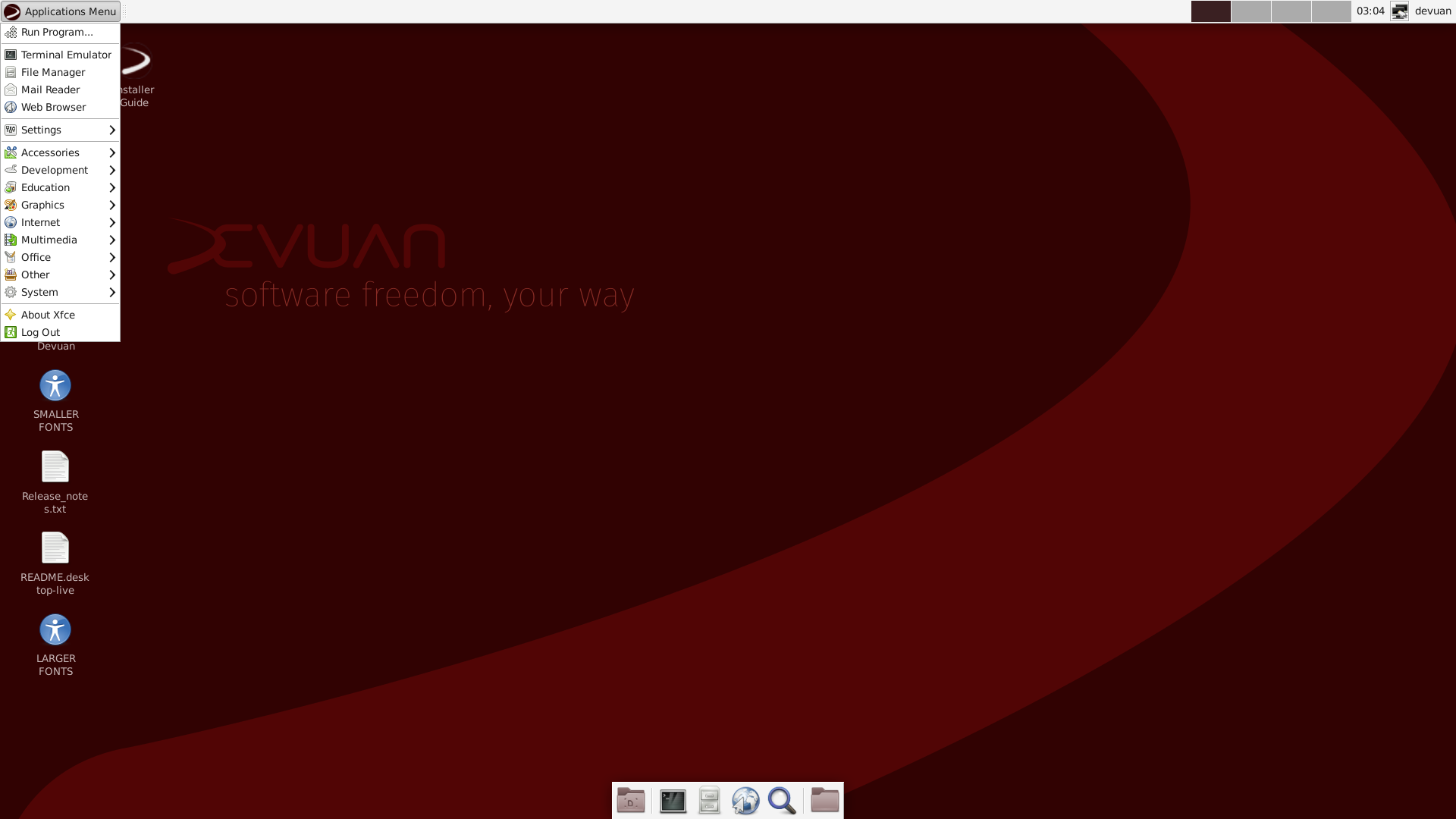The Devuan GNU-Linux is a Linux distribution based on Debian. The primary objective of the project is to provide a parchange of Debian without its complexities and dependencies systemd, an init system and services administrator originally developed by Red Hat and was later adopted by most Linux distributions.
Mark Hindley today announced the release of Devuan GNU-Linux 3.0.0, codenamed "Boewulf". As mentioned above the Devuan distribution is based on Debian but uses the alternative init software instead of systemd (SysV, OpenRC or runit).
This version of the Devuan distribution is based on Debian 10:
"Its developers Devuan are pleased to announce the release of Devuan 'Beowulf' 3.0.0 as the project's new stable release. It is the result of many months of hard work by team and detailed testing by the wider Devuan community.
What's new in Beowulf 3.0.0?
It is based on Debian Buster (10.4) with Linux 4.19 kernel, support for ppc64el in addition to existing i386, amd64, armel, armhf and arm64 architectures. Brings runit as an option instead of / sbin / init, openrc an optional alternative to sysv-rc and runlevel control. It has autonomous daemons of eudev and elogind to replace the aspects of the monolithic systemd.
Along with all the above it brings a new theme startup, screen and desktop management. "
Read it announcement of the new release and release notes for more details.
Devuan 3.0.0 is available as live ISO ("Minimal" or "Desktop" with Xfce) or installation ISO ("Desktop", "Server" and "Netinstall"). Here you can find the download links for architecture x86_64:
- devuan_beowulf_3.0.0_amd64_desktop-live.iso (1,155MB, SHA256, signature),
- devuan_beowulf_3.0.0_amd64-desktop.iso (3,641MB, SHA256, signature),
- devuan_beowulf_3.0.0_amd64-server.iso (620MB, SHA256, signature),
- devuan_beowulf_3.0.0_amd64-netinstall.iso (308MB, SHA256, signature).





